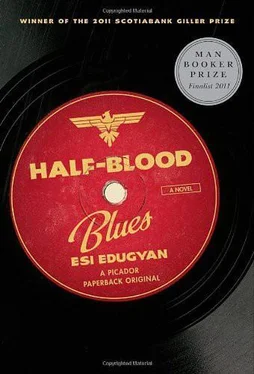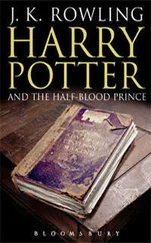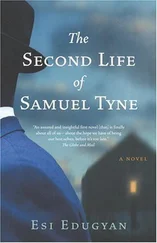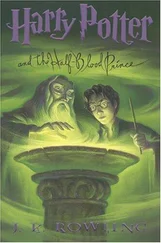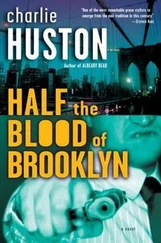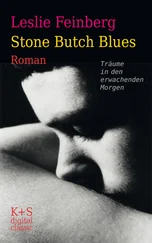‘Foreign,’ the shorter Boot was saying, his voice so calm and soft I almost ain’t heard it. ‘Stateless person of Negro descent.’
Hiero and that Jewish kid, they stood there with their hands dangling at their sides, defiant schoolboys. It ached to watch, the both of them so helpless, their hearts going hard. With the broad pane of glass shining bright behind them I couldn’t see too clear. But even from here I could hear them. Their breathing.
The tall Boot done soften his voice, too. It was odder than odd: these Boots was so courteous, so upstage in their behaviour, they might’ve been talking bout the weather. Nothing like how they’d behaved in Berlin. There was even a weak apology in their gestures, like they was gentlemen at heart, and only rough times forced them to act this way. And this politeness, this quiet civility, it scared me more than outright violence. It seemed a newer kind of brutality.
‘Foreigners,’ said the short Boot calmly. ‘Hottentot.’
‘Stateless,’ said the other. ‘Foreigner,’ he said. Jew, he said. Negro, he said.
I wanted to close my eyes. My legs was shaking softly, I couldn’t feel nothing in my feet. Don’t you drop, boy, I told myself, don’t you damn well drop. Get you wits together, for god’s sake, and go out there.
I stood there, rooted to the spot.
Hieronymus, he stared down them Boots. When their hard gazes forced his away, he look at the tiled floor. He never once look in the direction of the toilets, and I understood. Hell. He , of all people, protecting me . I couldn’t let him do it.
But just then the Boots yanked wide the Coup’s door, its chain singing. Taking Hiero’s arm, they led him and the other boy out into the street. I stood there. Stood there with my hands hanging like strange weights against my thighs, my chest full of something like water. Stood there watching Hiero go.
The front door shut with a clatter. The lights was all still up in the café. Silence, no one talking at all.
Then that gent, the one I seen before almost smiling, he got up and walked to the bar. Counting out his francs, he stacked them on the mahogany bar. He said something in French to the barkeep.
The barkeep just swept up the damp francs and turned to put them into the register. The man skirted the tables, his heels scraping the worn floor. No one spoke, all of us watching. And then the door jangled cheerfully shut behind him.
C hip called to say he was dropping in and I told him Sure, brother, anytime.
I had all the lights on in my Fells Point pad, the thick shag carpet of my narrow living room drowned in clothes and folders and trash, the detritus of a life, all of it pulled out as I tried to decide just what to pack, when I heard his sharp rapping at the door. See, we was set to fly out the next day. I headed down the hall, past its stacks of browning newsprint, its crooked, black-framed photos. Forty-four years I’d lived here. Lola’s father had bought it for us after the war, and when she died five years after our wedding, it come on down to me.
The door was like to stick now, so that I had to yank on the old brass handle till it give. And there he stood, my oldest friend, looking worn as a used mattress, his face all dry and pocked with pores.
He come in grinning. ‘Man, Sid, ain’t you ever going to clean up? You live in plain disrepair.’ He crossed my bald welcome mat, his face dark against his gleaming shirt. He got this booming voice, and when he talked it overwhelmed the air, shoved it aside like oil in a cup of water. A real feat, considering his size. Shoeless and hatless, Chip Jones stood just five feet four inches tall.
‘You a fine one to talk of disrepair, brother,’ I said, taking his soft black coat to hang on the hatstand. ‘You seen your face lately? You look like an old lady’s handbag.’
‘Don’t I know it,’ said Chip, rubbing his cheeks with his huge hands. ‘On my walk over here a man tried to mug me for my face.’
‘Ain’t you funny,’ I said, patting his back. ‘Ain’t you hilarious. You already packed, I guess.’
He shrugged. ‘A man’s got to unpack first before he can pack.’ He glanced theatrically again at the mess on the floor. ‘I guess you know that though.’
I got Chip settled into my chaotic living room and went on over to the kitchenette.
‘What you drinking?’ I called out to him. ‘Scotch?’ When he didn’t reply I leaned through the door and looked at him. ‘You want a scotch?’
He looked up. ‘What?’
‘All that drumming catching up with you, brother? You going a little deaf?’
He smiled. ‘Aw, just a little. What you say?’
‘Scotch alright with you?’
He licked his old chops. ‘I ain’t never said no to one yet.’
I was watching him there feeling awful for him. I known that the state of his face wasn’t only cause he tired. The drugs was finally taking their toll. See, he been on horse for decades, only kicked the habit about fifteen years ago. He been clean so long now I done forgot he’d used at all. I still couldn’t get my head around the idea. If you’d known Chip in his youth, addiction would have seemed impossible. He was proper proper, strait-laced, hell, almost a prude when it come to illegal substances. Anyway, it shocked me, seeing a disease long-conquered showing up now in his features. It’s like that, I guess, when the past come to collect what you owe.
I poured us two scotches neat, just the thinnest blade of ice in them. ‘You think the Hound’ll still be there?’ I said.
‘Where? You mean in Berlin?’
I smiled as I sat down.
‘Naw,’ said Chip. ‘There ain’t nothing much left of all that. You won’t recognize it.’
‘Well,’ I said. ‘I never much thought I’d go back.’
Chip held up his drink.
‘ Prost ,’ we said together, hitting thimbles.
‘You seen the picture yet?’
Chip shook his head. ‘Caspars won’t let no one see it. Not before the festival. How bad you think it can be?’
‘Oh bad, bad. How you talked me into this, brother, I don’t know.’
He grinned. ‘It just my damned charming face, I reckon.’
‘Yeah,’ I said. ‘That must be it.’
We was silent then for a time. I got to tell you how strange it was seeing Chip here. Even with his face falling apart he still hands-down the nattiest thing in my house. He wore a navy suit of such beautiful tailoring I would’ve had to mortgage my place to buy it.
Chip used to say, you don’t got blue-blood in you veins, Sid, may as well dress like you do. Confuse folks. And so even when he didn’t have the money, he stepped out in seersucker suits and shirts starched so stiff they left pressure marks on his wrists. Even onstage hitting the skins, he look like a croupier dealing cards. Only time you ever seen him untidy is after a fight, and what a sight that was: James Bond run through a blender. Though you known the other fella probably got off worse.
‘The scotch is excellent,’ said Chip, setting down his glass on the sun-faded table.
‘Aw, I know you used to better.’
‘It’s fine.’ Chip glanced around, clearing his throat softly. Without thought or permission (when has Chip Jones ever needed permission?), he whipped out a titanium cigarette case engraved with his initials. Taking out what I known could only be the finest of cigarillos, he lit up. He held the case out to me.
‘Naw. I start smoking the good stuff, I never be able to go back. Besides, got to watch my health.’
‘You ill?’
‘No, sir. Just… retirement. Gets you thinking.’
Читать дальше
